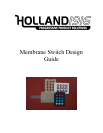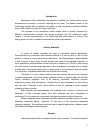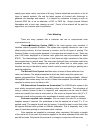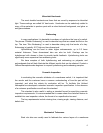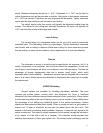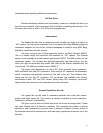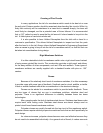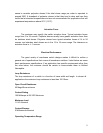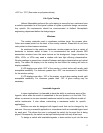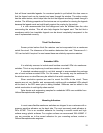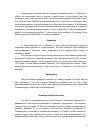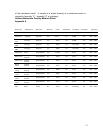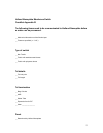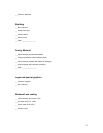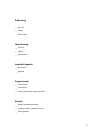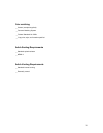4
Ultraviolet Hardcoats
The most durable hardcoats are those that are cured by exposure to ultraviolet
light. These coatings are called UV hard-coats. Hardcoats can be selectively added to
many of the materials to produce parts with a velvet textured background, and gloss or
anti-glare windows.
Embossing
In many applications it is desirable to emboss or hydroform the keys of a switch.
The phrase “Plateau Embossing” is used to describe keys that are raised and flat on the
top. The term “Rim Embossing” is used to describe raising only the border of a key.
Embossing is typically .010" high and two dimensional.
Hydroforming can be used to attain higher embossments, up to 2-3 times
material thickness. Three dimensional dies can also be built. Overlays can be
hydroformed with domes in them to provide tactile feedback. Hydroforming tools are
significantly more expensive than embossing tools.
We have samples of both hydroforming and embossing on polyester and
polycarbonate that will help illustrate the different results that can be attained. Contact a
Holland Nameplate sales engineer to request hydroforming and embossing samples.
Cosmetic Inspection
In evaluating the cosmetic attributes of a membrane switch, it is important that
the vendor and the customer have a common understanding of how the part will be
inspected, and what the criteria for evaluation will be. To facilitate this Holland
Nameplate has developed a standard cosmetic inspection specification. In the absence
of a customer specification we will use this standard.
This standard is also useful in setting a standard format for specifying cosmetic
inspection requirements. It is recommended that in cases where the customer desires to
establish his own inspection criteria, the format of our specification be used.
The key requirements include viewing time, viewing angle, viewing distance, and
defect size.
Mechanical Tolerances
Steel rule dies are usually used to fabricate the various layers of a membrane



